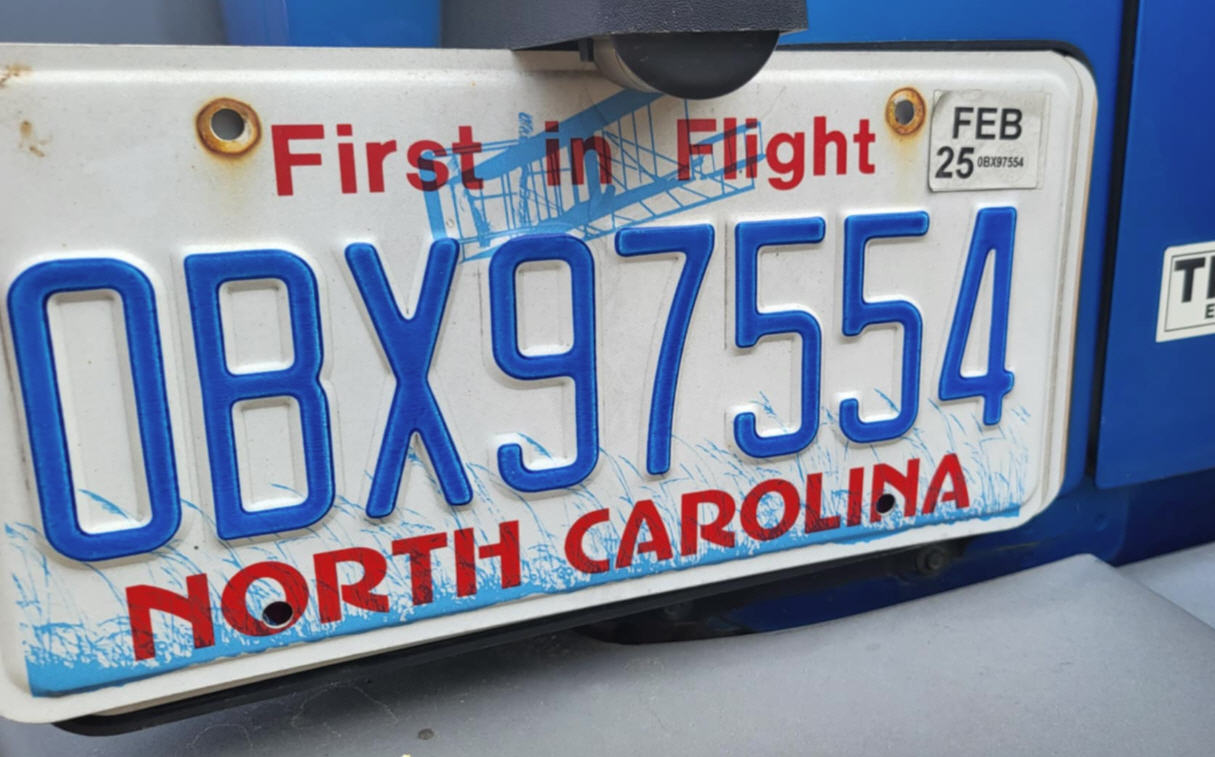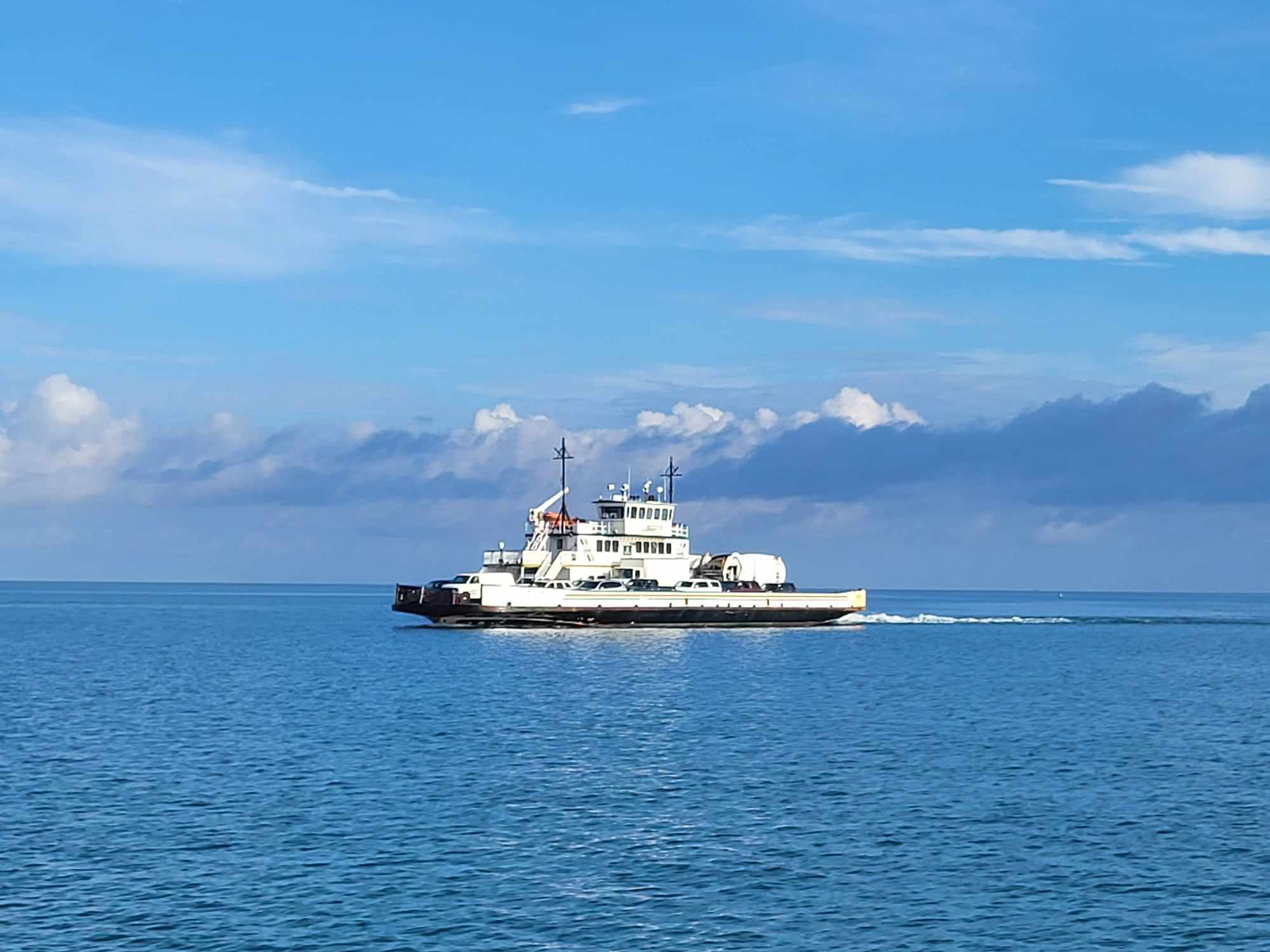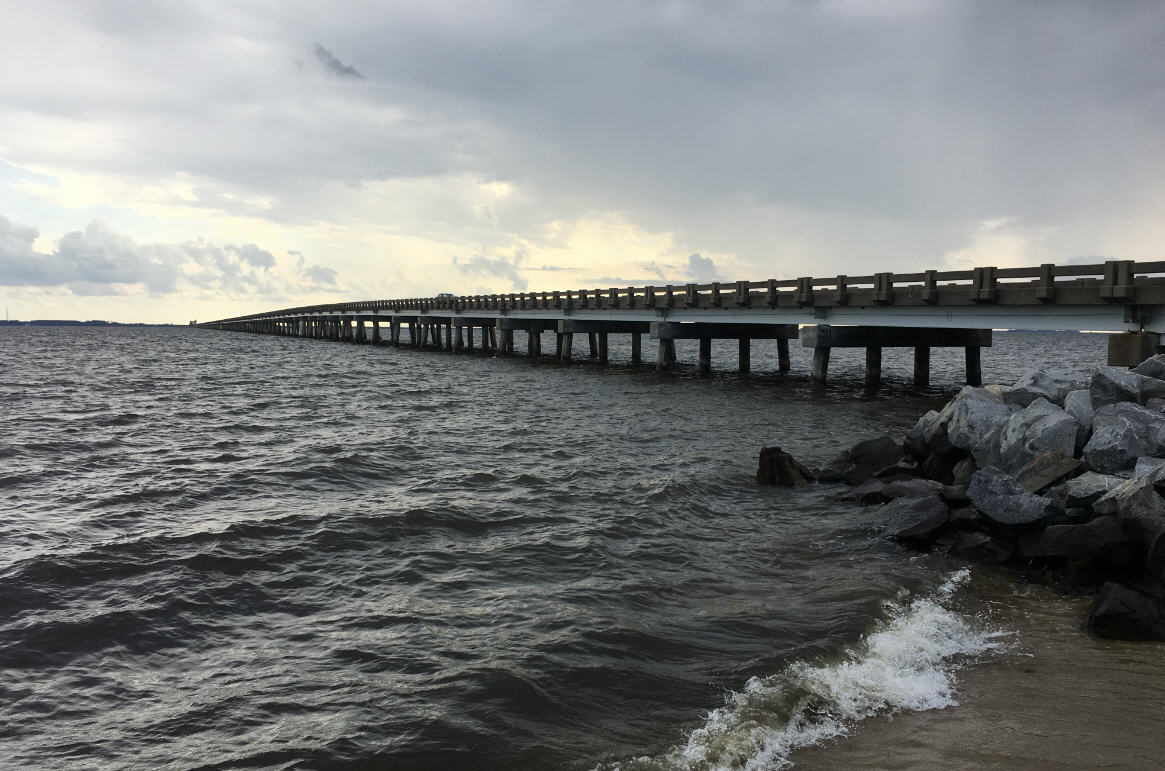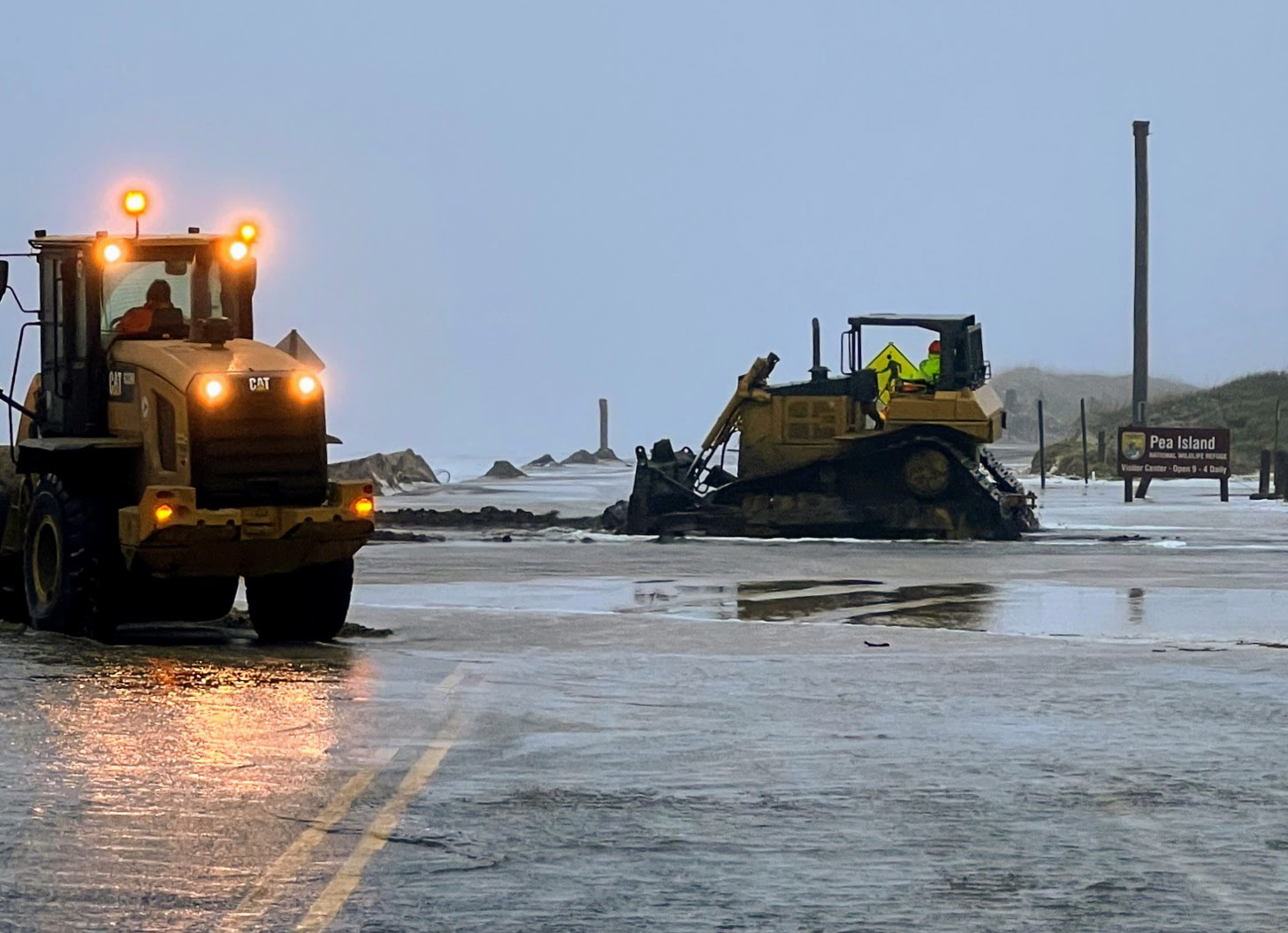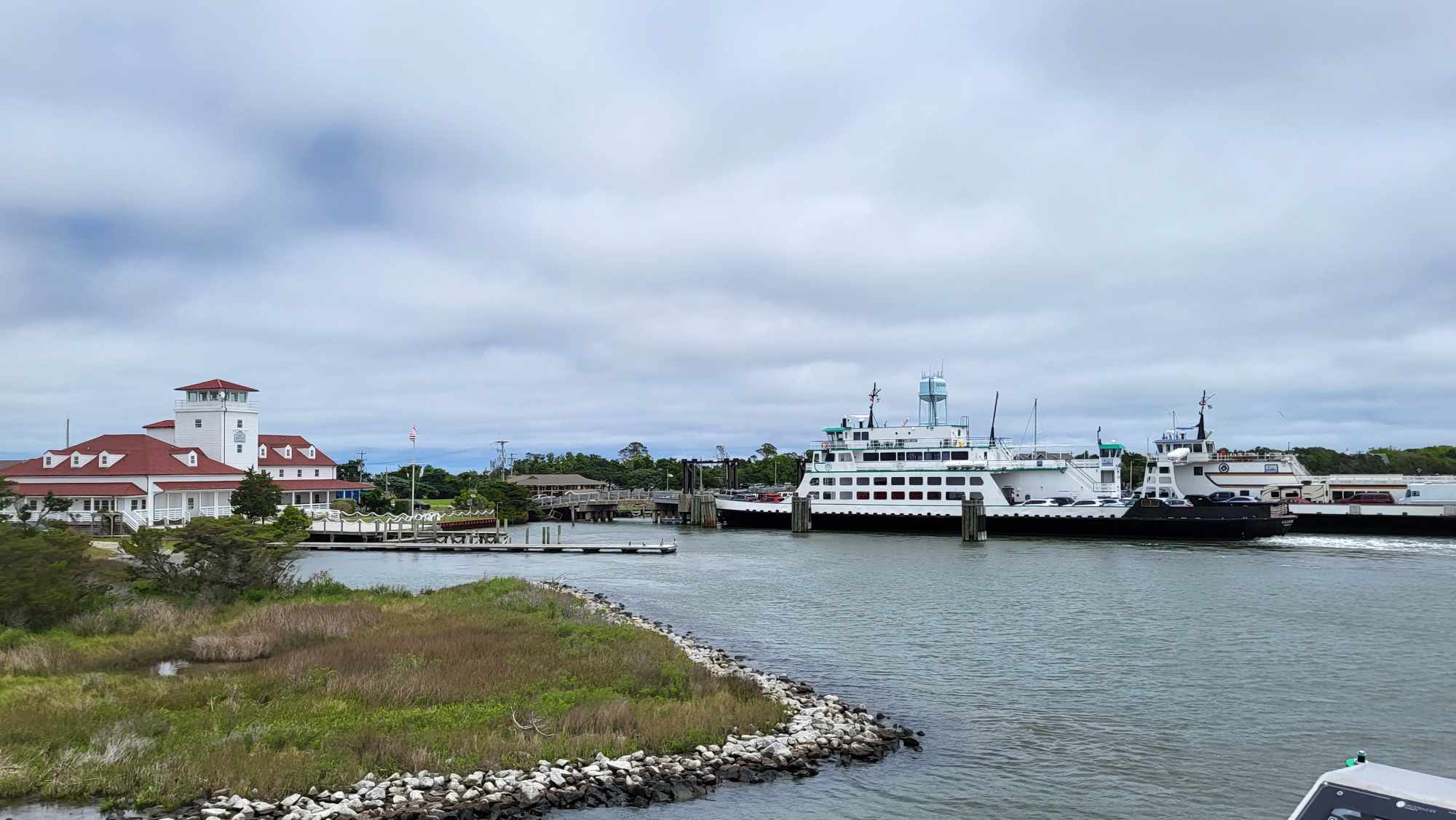UPDATE: Redevelopment of old Coast Guard housing gets commissioners’ approval By CATHERINE KOZAK
By CATHERINE KOZAK
By CATHERINE KOZAK
The Cottages at the Cape project in Buxton cleared a major hurdle on Monday, with unanimous approval by the Dare County Board of Commissioners of a zoning change that will permit duplexes and rebuilding of buildings under certain conditions.
Formerly housing for Coast Guard families at Group Cape Hatteras, the 45-unit complex has been vacant since 2005 and requires substantial renovation.
Lee Pontes, one of the project’s managers, told the board during the public hearing that the developers expect to spend about $2 million to restore the property, including construction of new stormwater and wastewater systems.
“The cottages are currently in a state of disrepair, which increases every day,” Pontes said.
Developers had requested to change the zoning at the 8-acre site adjacent to the Cape Hatteras Lighthouse from Natural Historic to Buxton Natural Historic. With the new zoning in place, they now plan to ask the Coast Guard for a license to start repair work on the buildings before the closing next month, co-manager James Pereira said after the hearing.
In September, the Coast Guard accepted a bid of about $2.6 million from Sylakama LLC, a Virginia Beach acquisition company owned by three sisters. Pontes and Pereira are married to two of the sisters.
Chris Wade, a resident of a neighboring subdivision, told the board that she opposed the zoning change, in part, because the systems proposed to treat stormwater and wastewater “are flimsy.” She also questioned what they’re going to do about ocean overwash from the nearby beach.
“There is no longer any dune,” Wade said, referring to the buffer between the eroding shoreline and the buildings, “which is why the lighthouse was moved.”
Others had safety concerns about traffic and pedestrian safety. The commissioners agreed that a traffic study to look into sidewalk construction and possibly a traffic light should be investigated.
But Holly Austin, vice-president at Hatteras Realty, said that the project would be a great thing for the community to have the facility brought “back to life” and have the undesirable flooding and standing water addressed at the site.
“If this is going to be a viable project,” she told commissioners, “it is in the owners’ best interest to make sure those issues are taken care of.”
Hatteras Realty will be managing the properties for the company, Pereira said after the meeting. Since a half basketball court and parking areas already have to be removed to install the wastewater treatment system, Pereira said there will no pool at the site. But tenants and renters will be able to use the real estate company’s Olympic-size pool in Avon, he said.
In a presentation given at the commissioners’ May 21 meeting, Pereira detailed the benefits to the county and the community — property tax revenue would be about $41,000 per year and occupancy tax would be about 5 percent of total lodging revenue.
Considering that, according to the Outer Banks Chamber of Commerce, the average family spends $2,751 per week on summer vacation, and the 36 seasonal cottages will be rented more than six prime weeks, that means there would be $555,336 in additional money poured into the local economy.
Pereira also said that local contractors and merchants were given priorities in bidding for work related to an expected $2 million in renovation costs. After the closing on July 2, he said there will be work totaling more than $280,000 for Dare County painters; $220,000 for flooring; $240,000 for HVAC; $150,000 for stormwater and landscaping; $200,000 for the wastewater system; and for Hatteras Island contractors, $210,000 for plumbing, electrical and carpentry; $300,000 for North Carolina furniture and appliances and $100,000 annually for Hatteras Realty, at a steady rate.
If the Coast Guard gives the group permission, as soon as possible the developers want to start building the stormwater system, which will include a 5-foot foot deep retention pond and berms along the whole back area built 7 feet above sea level, that will contain any stormwater to the site. The system is designed to handle rainwater from a 10-year, 24-hour storm event with 7.33-inches of rainwater.
“It shows the level of commitment to the neighbors,” he said.
Pereira said that he expects some of the units will be ready to be occupied by the end of the summer.
The Cottages at the Cape project in Buxton cleared a major hurdle on Monday, with unanimous approval by the Dare County Board of Commissioners of a zoning change that will permit duplexes and rebuilding of buildings under certain conditions.
Formerly housing for Coast Guard families at Group Cape Hatteras, the 45-unit complex has been vacant since 2005 and requires substantial renovation.
Lee Pontes, one of the project’s managers, told the board during the public hearing that the developers expect to spend about $2 million to restore the property, including construction of new stormwater and wastewater systems.
“The cottages are currently in a state of disrepair, which increases every day,” Pontes said.
Developers had requested to change the zoning at the 8-acre site adjacent to the Cape Hatteras Lighthouse from Natural Historic to Buxton Natural Historic. With the new zoning in place, they now plan to ask the Coast Guard for a license to start repair work on the buildings before the closing next month, co-manager James Pereira said after the hearing.
In September, the Coast Guard accepted a bid of about $2.6 million from Sylakama LLC, a Virginia Beach acquisition company owned by three sisters. Pontes and Pereira are married to two of the sisters.
Chris Wade, a resident of a neighboring subdivision, told the board that she opposed the zoning change, in part, because the systems proposed to treat stormwater and wastewater “are flimsy.” She also questioned what they’re going to do about ocean overwash from the nearby beach.
“There is no longer any dune,” Wade said, referring to the buffer between the eroding shoreline and the buildings, “which is why the lighthouse was moved.”
Others had safety concerns about traffic and pedestrian safety. The commissioners agreed that a traffic study to look into sidewalk construction and possibly a traffic light should be investigated.
But Holly Austin, vice-president at Hatteras Realty, said that the project would be a great thing for the community to have the facility brought “back to life” and have the undesirable flooding and standing water addressed at the site.
“If this is going to be a viable project,” she told commissioners, “it is in the owners’ best interest to make sure those issues are taken care of.”
Hatteras Realty will be managing the properties for the company, Pereira said after the meeting. Since a half basketball court and parking areas already have to be removed to install the wastewater treatment system, Pereira said there will no pool at the site. But tenants and renters will be able to use the real estate company’s Olympic-size pool in Avon, he said.
In a presentation given at the commissioners’ May 21 meeting, Pereira detailed the benefits to the county and the community — property tax revenue would be about $41,000 per year and occupancy tax would be about 5 percent of total lodging revenue.
Considering that, according to the Outer Banks Chamber of Commerce, the average family spends $2,751 per week on summer vacation, and the 36 seasonal cottages will be rented more than six prime weeks, that means there would be $555,336 in additional money poured into the local economy.
Pereira also said that local contractors and merchants were given priorities in bidding for work related to an expected $2 million in renovation costs. After the closing on July 2, he said there will be work totaling more than $280,000 for Dare County painters; $220,000 for flooring; $240,000 for HVAC; $150,000 for stormwater and landscaping; $200,000 for the wastewater system; and for Hatteras Island contractors, $210,000 for plumbing, electrical and carpentry; $300,000 for North Carolina furniture and appliances and $100,000 annually for Hatteras Realty, at a steady rate.
If the Coast Guard gives the group permission, as soon as possible the developers want to start building the stormwater system, which will include a 5-foot foot deep retention pond and berms along the whole back area built 7 feet above sea level, that will contain any stormwater to the site. The system is designed to handle rainwater from a 10-year, 24-hour storm event with 7.33-inches of rainwater.
“It shows the level of commitment to the neighbors,” he said.
Pereira said that he expects some of the units will be ready to be occupied by the end of the summer.
The Cottages at the Cape project in Buxton cleared a major hurdle on Monday, with unanimous approval by the Dare County Board of Commissioners of a zoning change that will permit duplexes and rebuilding of buildings under certain conditions.
Formerly housing for Coast Guard families at Group Cape Hatteras, the 45-unit complex has been vacant since 2005 and requires substantial renovation.
Lee Pontes, one of the project’s managers, told the board during the public hearing that the developers expect to spend about $2 million to restore the property, including construction of new stormwater and wastewater systems.
“The cottages are currently in a state of disrepair, which increases every day,” Pontes said.
Developers had requested to change the zoning at the 8-acre site adjacent to the Cape Hatteras Lighthouse from Natural Historic to Buxton Natural Historic. With the new zoning in place, they now plan to ask the Coast Guard for a license to start repair work on the buildings before the closing next month, co-manager James Pereira said after the hearing.
In September, the Coast Guard accepted a bid of about $2.6 million from Sylakama LLC, a Virginia Beach acquisition company owned by three sisters. Pontes and Pereira are married to two of the sisters.
Chris Wade, a resident of a neighboring subdivision, told the board that she opposed the zoning change, in part, because the systems proposed to treat stormwater and wastewater “are flimsy.” She also questioned what they’re going to do about ocean overwash from the nearby beach.
“There is no longer any dune,” Wade said, referring to the buffer between the eroding shoreline and the buildings, “which is why the lighthouse was moved.”
Others had safety concerns about traffic and pedestrian safety. The commissioners agreed that a traffic study to look into sidewalk construction and possibly a traffic light should be investigated.
But Holly Austin, vice-president at Hatteras Realty, said that the project would be a great thing for the community to have the facility brought “back to life” and have the undesirable flooding and standing water addressed at the site.
“If this is going to be a viable project,” she told commissioners, “it is in the owners’ best interest to make sure those issues are taken care of.”
Hatteras Realty will be managing the properties for the company, Pereira said after the meeting. Since a half basketball court and parking areas already have to be removed to install the wastewater treatment system, Pereira said there will no pool at the site. But tenants and renters will be able to use the real estate company’s Olympic-size pool in Avon, he said.
In a presentation given at the commissioners’ May 21 meeting, Pereira detailed the benefits to the county and the community — property tax revenue would be about $41,000 per year and occupancy tax would be about 5 percent of total lodging revenue.
Considering that, according to the Outer Banks Chamber of Commerce, the average family spends $2,751 per week on summer vacation, and the 36 seasonal cottages will be rented more than six prime weeks, that means there would be $555,336 in additional money poured into the local economy.
Pereira also said that local contractors and merchants were given priorities in bidding for work related to an expected $2 million in renovation costs. After the closing on July 2, he said there will be work totaling more than $280,000 for Dare County painters; $220,000 for flooring; $240,000 for HVAC; $150,000 for stormwater and landscaping; $200,000 for the wastewater system; and for Hatteras Island contractors, $210,000 for plumbing, electrical and carpentry; $300,000 for North Carolina furniture and appliances and $100,000 annually for Hatteras Realty, at a steady rate.
If the Coast Guard gives the group permission, as soon as possible the developers want to start building the stormwater system, which will include a 5-foot foot deep retention pond and berms along the whole back area built 7 feet above sea level, that will contain any stormwater to the site. The system is designed to handle rainwater from a 10-year, 24-hour storm event with 7.33-inches of rainwater.
“It shows the level of commitment to the neighbors,” he said.
Pereira said that he expects some of the units will be ready to be occupied by the end of the summer.
Subject
Name
(required, will not be published)
(required, will not be published)
City :
State :
Your Comments:
May be posted on the Letters to the Editor page at the discretion of the editor.
May be posted on the Letters to the Editor page at the discretion of the editor.
May be posted on the Letters to the Editor page at the discretion of the editor.
May be posted on the Letters to the Editor page at the discretion of the editor.





